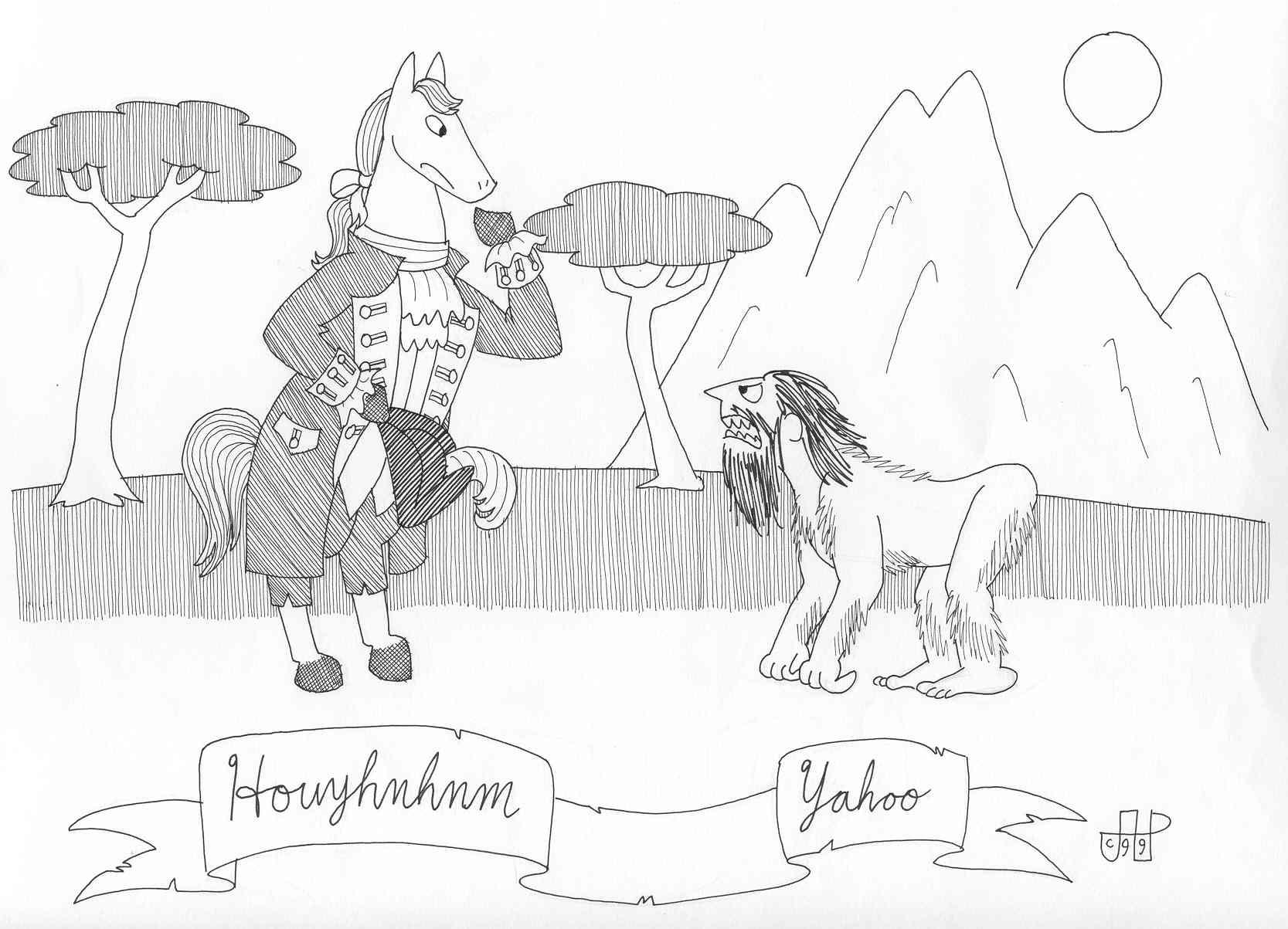Are the Lilliputians
inherently bad? I know that they’re supposed to be caricatures of the modern
English folk for Swift’s time, but I can’t help but wonder if there’s more to
them than that. Granted, they’re at times just as petty and odd as our own race
is, what with the pointed shoes and eggshell crackings, but I would still argue
that the Lilliputians are not as bad as we are or could be, at the very least.
It’s in the way that they interact with
Gulliver himself that makes me think this, at least marginally. Aspects of
their society, while somewhat barbaric compared to ours, could also be seen as
somewhat favorable as being good intentioned (the main example being how
children are separated from their parents for so long). Their society almost in
some ways mirrors the society of Utopia, albeit the Lilliputians are much more
materialistic and focused on wealth and conquering other nations.
As Jordan mentioned in
another blog post, Gulliver himself is very much a caricature of a middle class
of people, with his naturally submissive nature and gullibility towards the
Lilliputians. Yet, at first, the Lilliputians treat Gulliver pretty darn
kindly. Sure, they make him follow certain rules that may seem a bit
tyrannical, but if they’re willing to take the momentous effort to maintain him
and feed him, then doesn’t that almost make them more selfless than anything else?
After all, one can only imagine how much food it takes for Gulliver to survive
on a daily basis. Just how would that end up affecting the economy and farmers’
livelihoods?
Is Gulliver really worth
the amount of effort that’s being put into his caretaking? Granted, it must be
creating a ton of new jobs in getting waiters and attendants for him, but all
he ever really did was put out a fire (in the worst way possible) and seize the
entire Navy of the enemy island. Granted, the latter of the two is pretty gosh
darned important, but even that can only go so far.
Until some of them plot to
kill Gulliver, the Lilliputians honestly seemed like pretty swell people. Their
society is one that, while I wouldn’t want to live in it, I’d certainly want to
visit. They seem like they’d be pretty nice if you kept on their good side.
It’s the same with the
horse people. Those guys, while extremely egotistical and haughty, have a
certain elegance to them that reminds me a lot of the English upper class.
There’s a certain superiority about them that would make them, at the very
least, fun to hang around. Even their language sounds super pretentious, and I
can only imagine it being spoken with a kind of pish posh British drawl that would
make it especially amusing.
Granted, they have a
concept of slavery same as the Lilliputians, but both races seem much more
civilized than our own Yahoo race. It’s odd considering that they both
represent certain characteristics of human society, but have perfection in
almost everything else that makes them seem all the more idyllic.




